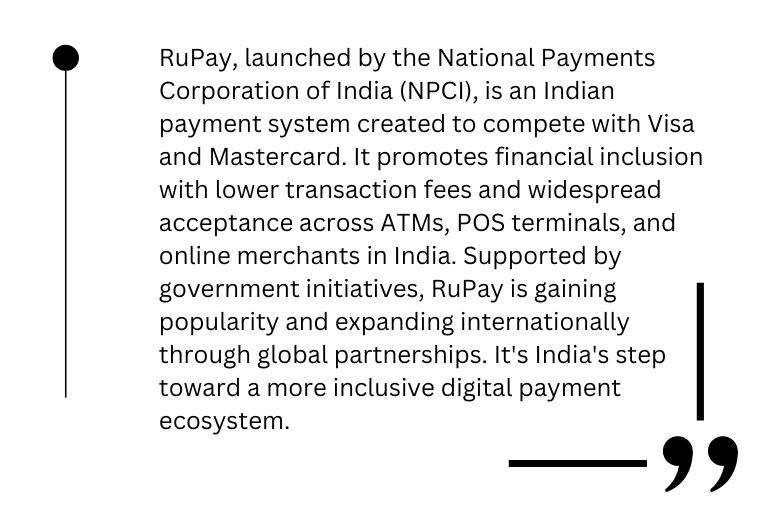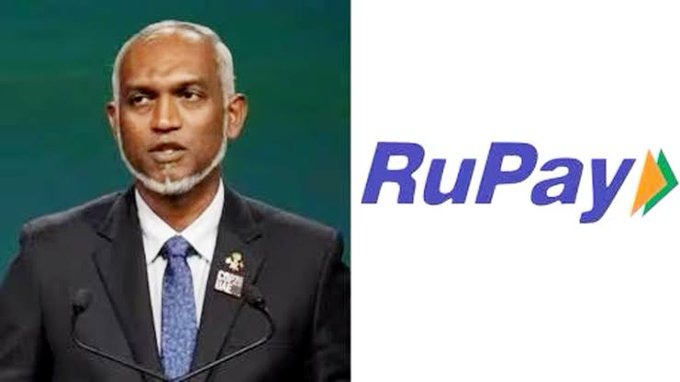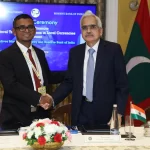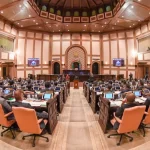Male’, – The Maldives made a larger overture to India by deciding to integrate India’s own digital payment system RuPay. This also comes amid the simultaneous recalibrating of relations between India and Maldives, reflecting intricate geopolitical moves being carefully played out in the neighborhood.
Mohamed Saeed, the Minister of Economic Development and Trade, indicated that the Maldives aims to facilitate transactions in Indian rupees through RuPay, the domestic card network akin to Visa or Mastercard. The Maldives has not set a timeline for the initiative’s deployment.

The decision came amid a period of tense relations between the two nations, which had been further strained by the Maldivian government’s apparent slide towards Beijing. However, in a jarring episode last spring, President Dr. Mohamed Muizzu requested the withdrawal of Indian military personnel stationed on the islands— a demand swiftly met by New Delhi.
However, economic pragmatism seems to be the order of the day. Indian tourists have traditionally been the Maldives’ largest market, and the marketing of RuPay could lead to a revival in numbers which fell sharply this year following calls for a boycott after light-hearted remarks about Prime Minister Narendra Modi from Maldivian junior Ministers.
While diplomatic relations are colored by undercurrents of friction, economic engagements between India and the Maldives come up across a bigger canvas. “India is one of our significant supporters. India has actually been playing a prominent role in taking the economic, trade and investment relationship between the two countries to new heights,” Zameer said during a recent visit to New Delhi.
The overture came along with New Delhi giving its nod to the highest-ever export quotas of essential commodities to the Maldives from India under a special bilateral regime. These exports include, among other things, eggs, potatoes and onions besides sugar, rice, wheat flour, pulses, river sand and stone aggregates.
Elsewhere, Indian infrastructure projects in the Maldives too are taking shape even as political suspicions continue. India invested nearly 7.7 billion rupees ($93 million) on infrastructure development in the Maldives during the last financial year ended in March, Indian officials told Reuters earlier this year.
The efforts notably involve a $500-million on roads and bridges in Malé and two airport schemes, each roughly $130 million, at the northern island of Hanimaadhoo as well as the southern Gan island. All these initiatives were funded through a LoC from India.
“This decision stems from the dependency of Maldives on Indian tourism market and they do not want to affect their economic growth and has nothing to do with political aspect,” Asia-Pacific chief economist Rajiv Biswas at IHS Markit told PTI.
The Maldives and India had first unveiled plans to bring the RuPay card into use in the archipelago in August last year when President Ibrahim Mohamed Solih visited India.
For India, this fits into its strategic ambitions to increase the global footprint of RuPay. In the past two years alone, India has expanded some of its digital payment systems such as Unified Payments Interface (UPI) to other nations including Burhan, Nepal and UAE — countries home to millions of expat Indians.
“Expanding the RuPay network is both a way of expanding India’s economic muscle and serving its diaspora,” said Tanvi Madan, senior fellow at the Brookings Institution.
With geopolitical realignments unfolding in the Indo-Pacific, examples such as that of Maldives showing its preference for RuPay reflect the complex dynamic between economic and strategic pursuits that underline the new regional order.
“It is often a necessity for small states to maintain their economic relations with the powers,” Madan said. “The Maldives’ outreach to India is a good example of such adept balancing,”.
The sustained economic engagement between the two countries underscores the complex interplay of strategic interests and economic imperatives in the region. While political currents may ebb and flow, the pursuit of mutually beneficial economic cooperation appears to be a stabilizing force in Indo-Maldivian relations.












